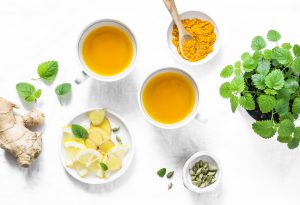 Having a little bit of inflammation from time to time is a good thing. It’s your body’s natural response to injury or infection.
Having a little bit of inflammation from time to time is a good thing. It’s your body’s natural response to injury or infection.
But some conditions, like arthritis, activate your immune system regularly, leading to almost constant inflammation. It worsens joint pain and can lead to indiscriminate and intense flare-ups.
Advertisement
The result is not only pain but fear and a diminished quality of life.
It can be challenging to reduce pain caused by arthritic flare-ups, but there are actions you can take that may reduce the frequency and severity of these painful periods.
Some foods can make inflammation worse. On the other hand, some might help soothe the immune system and reduce painful inflammation.
If painful joints are impacting your life, here are some foods that may be contributing to your struggles:
- Sugar (candies, chocolate bars, soda, fruit juice, sweet tea, etc.)
- Saturated Fats (pizza, cheese, meat products, grain-based deserts)
- Trans Fats (fried products, processed snack foods, frozen breakfast foods, cookies, donuts, crackers, margarine)
- Omega 6 Fatty acids (when consumed in excess. Found in several oils including vegetable and sunflower, mayo, and plenty of salad dressings)
- Refined carbs (bread, rolls, crackers)
- MSG (store-bought prepared Asian foods and sauces, fast food, prepared soups and soup mixes, deli meats, salad dressings)
- Gluten
- Casein (in dairy products)
- Aspartame (an artificial sweetener found in many “diet” products)
- Alcohol
Advertisement
Foods that may help ease inflammation and joint pain caused by arthritis include:
- Fatty fish like salmon, mackerel, and trout
- Garlic
- Ginger
- Broccoli
- Walnuts
- Berries
- Leafy greens
- Grapes
- Olive oil
Using diet to manage joint pain is a strategic preventative approach. Having a few tablespoons of olive oil won’t help if you’re experiencing a painful episode.
Instead, try including more of these items into your daily eating plan while limiting inflammatory foods to get the best result. It may take some time, but you could notice a difference over time.
